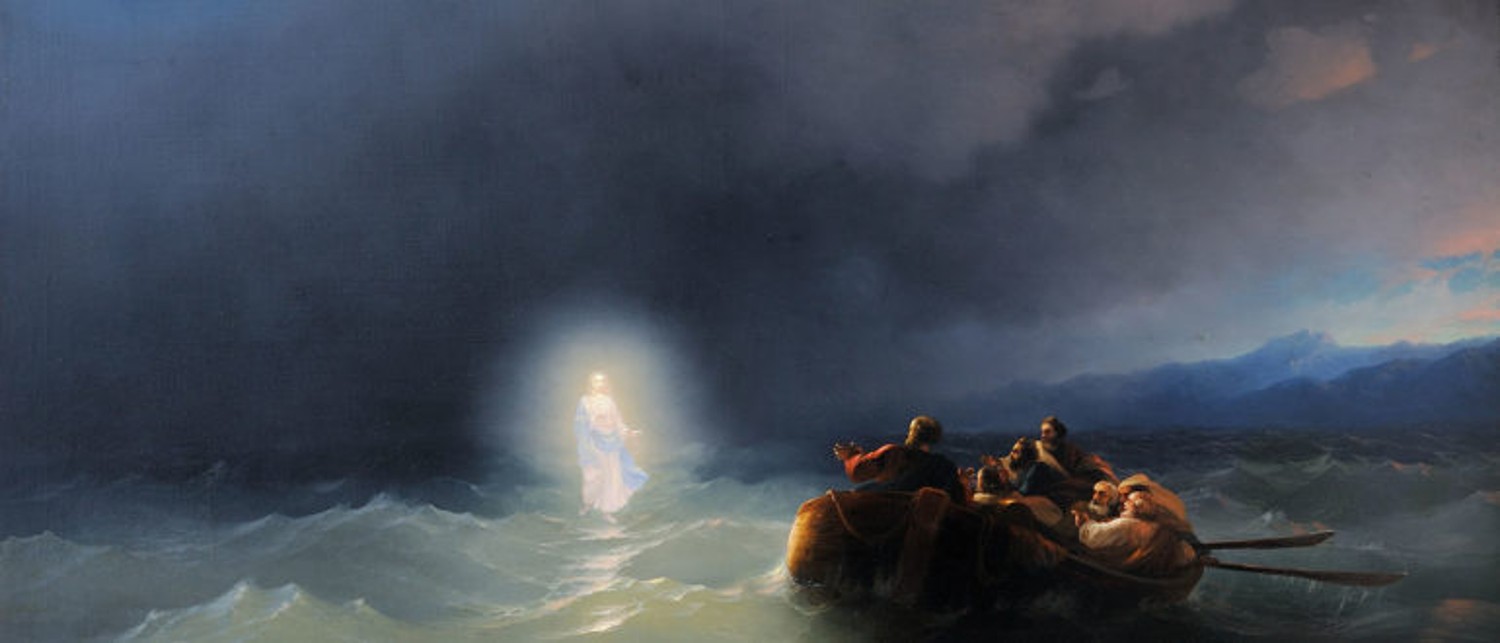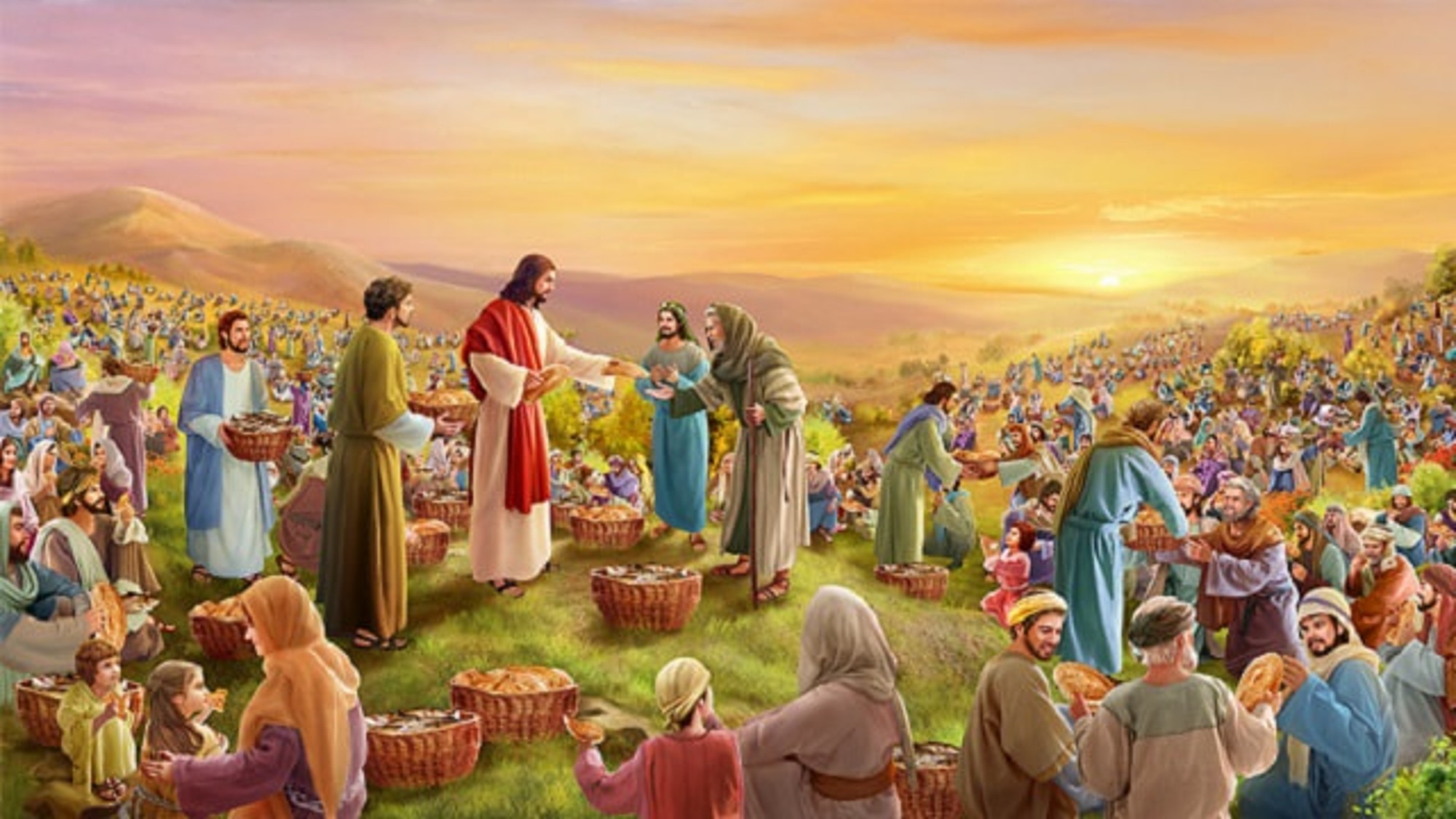|
|
August 9, 2020
"IT IS I; DO NOT BE AFRAID"

Today we have very powerful readings that speak to us about faith. First, we have that great reading from First Kings, a reading very dear to the Carmelites. In it, Elijah is invited to encounter God. All of us, like Elijah, are invited by God Himself into an encounter with Him. The point of Elijah’s experience in this passage is that God wants Elijah to encounter Him in a new way. Just before this passage, we had the exposing and killing of the false prophets of Baal. In that scene, God reveals Himself by coming down dramatically in fire to consume Elijah’s sacrifice. In today’s scene, we hear of many other dramatic manifestations. We hear about a strong wind, an earthquake, and a fire. But the Scripture writer tells us that God isn’t in any of those things. Rather, God reveals Himself in a tiny, whispering sound. Some translations say, in “a still, small voice”.
Elijah knows it’s God immediately, because Elijah was a man of prayer. He also knows that God revealing Himself in one way doesn’t mean He’ll always reveal Himself in that same way. Prayerfulness gives Elijah that gift of discernment. All of us need that same gift. Some of us could be tempted to see God only in private revelation or in miracles. In this time of Covid, we might think God is only in the church or in the adoration chapel. Well, we don’t have those things now. Does that mean that God has left us? This is where faith really comes in. Faith is very much needed when the storms of life surround us and encompass us, like they did Peter and the other apostles in today’s Gospel. Storms threaten to drown us, if we let them. You see, we have a choice in the matter. We can’t control the storms, but we can control our response to those storms. So when all the contradictory voices of Covid—what to do, what not to do; what to believe, what not to believe—swirl around us and leave us confused, we need to see Jesus right in the midst of that storm, walking on the water. When we can’t access the Sacraments as much, we need to truly believe that God is not limited to the Sacraments.
The Federal government can lock us down, the state can lock us down, the county can lock us down, the city can lock us down, even our Church can lock us down; but, my brothers and sisters, God CANNOT be locked down. He can work outside the Sacraments. His grace is sufficient. This is where faith really comes in to play. Sure, He may have been made present in a powerful way in the Mass or in the exposition of the Blessed Sacrament in the past, but He’s always present in that still small voice of our prayer, WHEREVER WE ARE. This is what Peter forgot. He took his eyes off the quiet, reassuring presence of Jesus and focused on the drama around him, the wind and the waves. That’s when he began to sink. My brothers and sisters, that’s when OUR faith also begins to sink...OR to stink—take your pick. When we get caught up in the chaos and the drama around us, we forget that Christ is right with us, saying, “It is I; do not be afraid.”
Speaking of not being afraid, I’d be remiss if I didn’t mention our great Carmelite saint of the day, St. Edith Stein, known in Carmel as St. Teresa Benedicta of the Cross. We’re not celebrating her feast or her Mass today because, obviously, Sunday takes precedence. But we couldn’t get better Sunday readings to recall her great self-sacrifice in Auschwitz for her Church and for her people during World War II. Talk about a storm swirling around!
I have a recommendation for a fairly recent movie called A Hidden Life, about another beatified saint of our Church, Blessed Franz Jägerstätter. As a devout Catholic Austrian man, he was a conscientious objector to being in Hitler’s army. The movie really depicts the chaotic storm around that time of the War. Many Church leaders went silent in fear of the Nazis; they didn’t want to speak out. Sound familiar? However, some did speak out, like the Bishops in the Netherlands. As a repercussion, many Jews and Jewish Catholic converts, like Edith and her sister Rosa, were sent to the death camps. But Edith, St. Teresa Benedicta, was unflinching. Up until her death, she was consoling and ministering to those around her in the camp. Everyone around her recognized her calm, peaceful demeanor. Mind you, she didn’t have access to the Sacraments in the camp, but God was still with her. This was because of her prayer life and keeping her eyes fixed on Jesus and His presence in her midst. She became the calm in the storm because she was constantly encountering Jesus in that still small voice of prayer.
This is our goal, too. Especially as Christians, we must be that calm for those around us. If Catholics aren’t the calm in the Covid storm, then who will be? Who of us here, present at this Mass, will rise up and become the saints of Covid? We have great examples to follow: Edith Stein, her sister Rosa, and Elijah. Then we have the cautionary tale of Peter, the anti-example of calmness in the storm. We have to, unlike Peter when he was beginning to drown, take our eyes off ourselves, stop our navel gazing, and fix our eyes on Christ, who is always waiting for us and always saying to us, as He does today on August 9, 2020, in the midst of this pandemic, “It is I; do not be afraid.”
|
|
August 2, 2020
“THE ONLY ESSENTIAL”

My brothers and sisters in Christ, it is good to be reassured in these unsure times we’re living in right now. Many people are wondering if their kids will go back to school this Fall, whether they’ll go back to their jobs, their social lives, and even their parishes. St. Paul asks us in our second reading, "What will separate us from the love of Christ? Will anguish, distress...” To that, let's add Covid, rioting, campaigning, media propaganda, and persecution. It seems we're in the midst of a kind of subtle, sophisticated persecution right now, when it’s considered more dangerous to be in a church than to be in a supermarket, a Target store, a casino, or at a mass protest. Something isn't completely right with this picture. It's like a crooked picture that we can never straighten, even after repeated attempts.
Yet, God loves us. No matter who tries to lock us down, whether federal, state, county, city, or even the Church, God cannot be locked down. And His grace is sufficient. Maybe we can't receive the Sacraments as much as we're used to, but God can work outside the Sacraments. God cannot be chained down and His Will will prevail. It's important for us to recognize that God is allowing all this craziness for His purposes, that He is using it for something. Yes, you heard me, God is in charge! Not our governor or even our bishop. God is the one pulling the strings. So then the question is not, “Why would God do this?,” but what am I supposed to do in all this craziness? How is God calling me to respond? Because, remember, God IS in charge. We're not here to question His ways.
I think a lot of all this Covid craziness has been a good opportunity to re-evaluate what's most important in our lives. We've heard this distinction made by public officials: “essential versus non-essential”. Now, of course, we know as Catholics that the Mass and the Sacraments are essential. That's non-negotiable. But what else is absolutely essential? Are there things we can live without? Well, we've now had to go five months without movies, sports, and concerts. We may love these things, but are they essential? Since there are so many less distractions right now, I see this time as a great opportunity to make an extended retreat by spending more quiet time with God.
Our first reading reminds us of just how fleeting some of the things are that we pursue. "Why spend your money on what is not bread; your wages on what fails to satisfy?" Non-essential things. How fitting for the culture of luxury and convenience that we live in. Scott Hahn once said, "Why are we pigging out on the hors d'oeuvres when a filet mignon awaits us?" In other words, why are we wasting our time, money, and energy on things that don't last—when Heaven awaits us?
Jesus offers us all that can fill us and fulfill us. "All you who are thirsty, come to the water." Not only water, but drink wine and milk! He wants to fill us richly, dare I say, luxuriantly! And then in our Gospel, He wants to give us Himself. The story of the loaves and fishes has always been seen by the Church as a story about the Eucharist. Jesus miraculously multiplies Himself everyday in the Eucharist for everyone. It's free of charge. As our first reading says: "Come, without paying and without cost." That's our God, gratis and generous. He has so much to give us that the leftover fragments fill ten wicker baskets! There's nothing that can contain God and His generosity towards us. So when we are offered the Eucharist, the greatest gift that God has given to us on this earth, let us come. Let us be filled to overflowing; no, not like a restaurant buffet, but let us be filled with God, the only One who can satisfy us and the only One we were made for on this earth. He is the only essential on our list of what's most important in life.
|
|